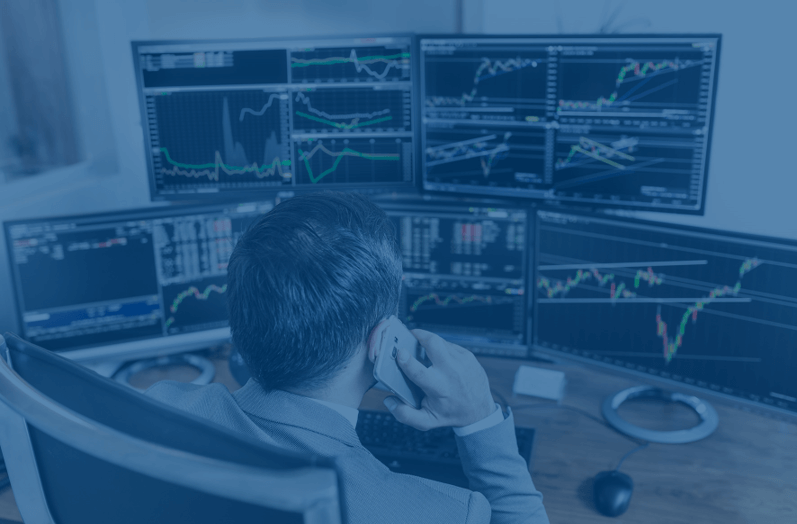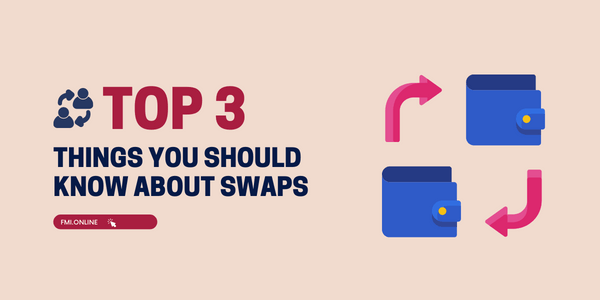Often when thinking about investment banks, people will conjure up images of traders sitting behind a wall of screens, with a telephone in each ear, shouting across the dealing room to a colleague.
The reality is that with the advent of technology and changes in regulations, trading jobs have changed, and trading desks are not the flurry of activity people imagine. However, it remains a very desirable role within investment banking with large numbers of applicants.
To impress your interviewer, you need to make sure you know how trading desks in today’s banks work.
Types of trading desks
Most investment banks will divide their Global Markets division into two main areas. Equities deal with executing trades in the equity and equity derivatives markets, while Fixed Income, Currencies, and Commodities (FICC) deal in the markets not related to equities.
Banks will further separate FICC into its component trading desks of Fixed Income, Currencies, and Commodities, meaning most Global Markets divisions will have four main trading desks.
Since the Global Financial Crisis, traders have been unable to use the bank’s capital for trading, a practice known as proprietary trading. Today, traders are more likely to be market makers, acting as intermediaries bringing buyers and sellers together. Often through this process or to help facilitate this process, the trader will have to hold a quantity of the asset themselves. This means they have to manage and hedge the market and liquidity risk from owning the asset.
By market making, the trader will earn the difference between the bid, the price they buy the asset for, and the offer, which is the price they sell the asset for. This difference is the spread. The trader can also earn fees from the exchange or trading platform for providing much needed liquidity in the market.
(You can experience what it is like to be a market maker on a trading desk through the Fmi Market Making simulation).
Some trades act as ‘execution only’ traders, meaning they ensure a client’s trade executes as per their instructions. These trades are known as agency trades, as the trader is acting as an agent for their client, and simply following their instructions. This does not mean the trader is not making any decisions. For large trades, which many agency trades are, execution only traders still need to manage and time the trade by breaking down the order into smaller parcels.
Execution only traders will earn fees for executing their client’s trades.
The effect of automation
Many people looking for a career as a trader are concerned about the impact automation will have on trading now and in the future.
Trading desks operating in markets with a lot of liquidity have already become highly automated. A good example of this is cash equities, which is the buying and selling of shares as most people know it. The reason for this automation is that shares are simple products, there is a lot of buying and selling daily, so writing algorithms becomes a more straightforward task.
A quick Google search for ‘cash equities trading automation’ will yield many stories of global markets divisions drastically reducing the number of traders on these desks, or closing these desks completely.
However, not all products that trade in the financial markets are as easy to automate. Trading roles in less liquid markets with more complex products, such as many derivatives, are less likely to become obsolete due to technology.
Top five skills needed for being a trader
Quantitative and programming skills – Having analytical and mathematical skills are a given. However, many people applying for trading roles today have some kind of programming, data mining, or data science qualification for the reasons already discussed.
Focus – Remaining focussed over extended periods is crucial for trading roles. As a trader, you will need to process information quickly and react to changes before traders at other banks
Discipline – One of the biggest challenges for traders is to remove emotion from their decision-making process. Studies have shown how traders make different decisions immediately following either a successful trade or a trade that lost money.
Specialization – Successful traders develop a deep understanding of the market they trade, so the ability to continually learn and gain expertise in the market you are trading in is vital
Multi-tasking – Traders will have to follow multiple trades at any time, across various platforms, while managing risk and tracking their P&L. This necessitates the ability to multi-task.
What to expect at job interviews
Interviews for entry-level trading roles are designed to test your understanding of the financial markets, your analytical attributes, and your ability to deal with stressful situations.
To test your understanding of the markets, expect to be asked what you think a typical day on a trading desk looks like, what the differences between cash equities and equity derivative trading is, and what you know about that particular bank’s trading desk capabilities compared to its competitors.
You may be asked unexpected questions specifically designed to make you feel uncomfortable. The purpose of these questions is usually twofold. Firstly to see how you react under pressure and secondly to assess your analytical and problem-solving skills. An example question could be ‘How many petrol stations are there in the United Kingdom,’ or ‘How many pizzas are eaten in New York each year.’












 60+ hours
60+ hours 9 courses
9 courses



